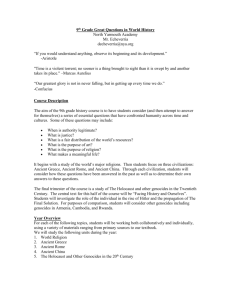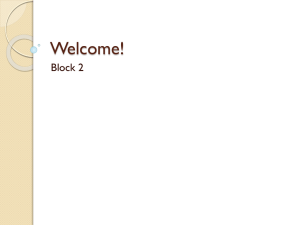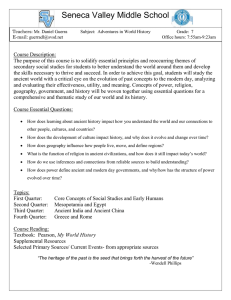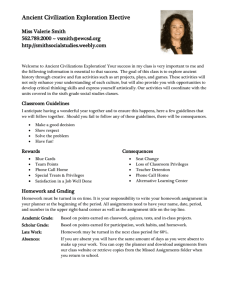7th – Burgess – Humanities
advertisement
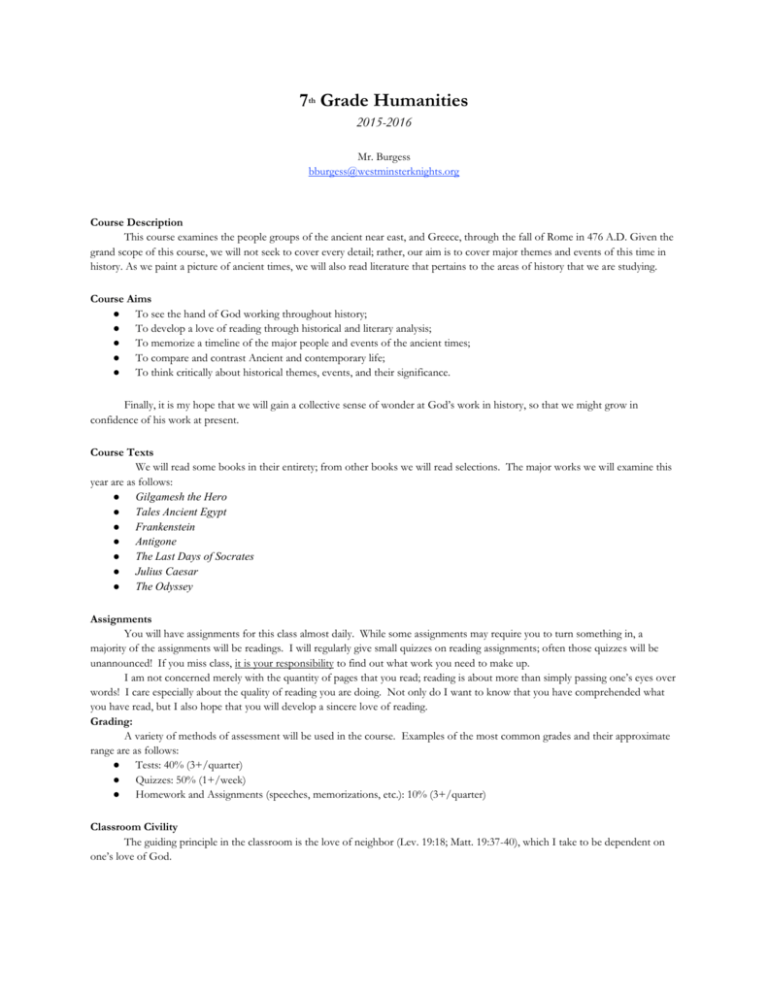
7th Grade Humanities 2015-2016 Mr. Burgess bburgess@westminsterknights.org Course Description This course examines the people groups of the ancient near east, and Greece, through the fall of Rome in 476 A.D. Given the grand scope of this course, we will not seek to cover every detail; rather, our aim is to cover major themes and events of this time in history. As we paint a picture of ancient times, we will also read literature that pertains to the areas of history that we are studying. Course Aims ● To see the hand of God working throughout history; ● To develop a love of reading through historical and literary analysis; ● To memorize a timeline of the major people and events of the ancient times; ● To compare and contrast Ancient and contemporary life; ● To think critically about historical themes, events, and their significance. Finally, it is my hope that we will gain a collective sense of wonder at God’s work in history, so that we might grow in confidence of his work at present. Course Texts We will read some books in their entirety; from other books we will read selections. The major works we will examine this year are as follows: ● Gilgamesh the Hero ● Tales Ancient Egypt ● Frankenstein ● Antigone ● The Last Days of Socrates ● Julius Caesar ● The Odyssey Assignments You will have assignments for this class almost daily. While some assignments may require you to turn something in, a majority of the assignments will be readings. I will regularly give small quizzes on reading assignments; often those quizzes will be unannounced! If you miss class, it is your responsibility to find out what work you need to make up. I am not concerned merely with the quantity of pages that you read; reading is about more than simply passing one’s eyes over words! I care especially about the quality of reading you are doing. Not only do I want to know that you have comprehended what you have read, but I also hope that you will develop a sincere love of reading. Grading: A variety of methods of assessment will be used in the course. Examples of the most common grades and their approximate range are as follows: ● Tests: 40% (3+/quarter) ● Quizzes: 50% (1+/week) ● Homework and Assignments (speeches, memorizations, etc.): 10% (3+/quarter) Classroom Civility The guiding principle in the classroom is the love of neighbor (Lev. 19:18; Matt. 19:37-40), which I take to be dependent on one’s love of God. I will not tolerate disrespectful or distracting behavior either toward me or other students. I expect you to arrive to class on time and ready to participate; three tardies will result in a detention, which will be served immediately after your final class on Friday afternoon. Academic Integrity In keeping with the Honor Code, each student is expected to do his or her own work on each assignment. Misrepresentation of someone else’s work as your own will carry serious consequences, which may include a zero on the assignment, a detention, or any response deemed appropriate by the administration. Late Work For minor written homework assignments, due dates must be met unless the student has an excused absence, otherwise no credit will be given. For major assignments (papers or projects), lateness will be penalized at the rate of 11% per day. If a student is absent for this class but is on campus at different times and attends other classes, it will be that student’s responsibility to turn in assigned work for that day before leaving school that day.




